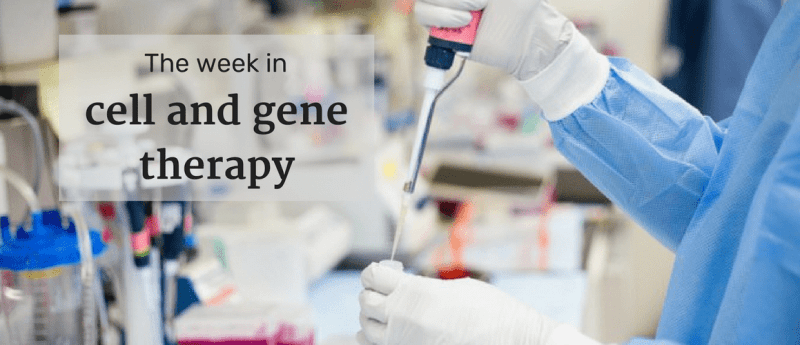Cell therapy weekly: First-of-its kind iPSC-derived CAR-T cell therapy prepared for clinical testing

This week: Magnetic fields aid tissue repair and a novel method for preventing immune rejection of allogeneic stem cell transplants.
The news highlights:
First-of-its kind iPSC-derived CAR-T cell therapy prepared for clinical testing
Magnetic fields direct stem cells to aid tissue repair
A novel method for preventing rejection of allogeneic stem cell transplants
First-of-its kind iPSC-derived CAR-T cell therapy prepared for clinical testing
Autologous CAR-T cell therapies offer promises as revolutionary cancer immunotherapies. Takeda Pharmaceutical (Tokyo, Japan) and the Center for iPS Cell Research and Application (CiRA) at Kyoto University (Japan) have announced the progression of a novel iPSC-derived CAR-T cell therapy towards clinical testing. The so-called ‘iCART’ therapy employs a clonal master iPSC bank to produce on-demand, tailorable immunotherapies for patients. The first ‘iCART’ clinical trial is due to commence in 2021.
Andy Plump, Research and Development President at Takeda, commented: “Today, we celebrate with Dr Yamanaka, Dr Kaneko and our CiRA colleagues as the first T-CiRA cell therapy program is transferred to Takeda for clinical development…The iCART program demonstrates our commitment to bringing transformational, next-generation CAR-T therapies to patients by applying our translational cell therapy engine.”
Magnetic fields direct stem cells to aid tissue repair
Researchers at Hiroshima University (Japan) have demonstrated that cells infused with superparamagnetic iron oxide nanoparticles (SPIOs) can be successfully directed to specific body regions following external application of a magnetic field. This process may aid tissue repair of cartilage defects by ensuring the cells reach their necessary targets. The team have begun assessing the in vitro safety and efficacy of these so-called magnetically labelled, human mesenchymal stem cells (MSCs), utilizing karyotyping, colony formation and total proliferation assays.
John A. Jansen, Department of Biomaterials Head at Radboud University Medical Center (Nijmegen, Netherlands) and Tissue Engineering Methods Co-Editor-In-Chief, stated: “The dedicated delivery of MSCs to the defect site is a major step forward in the clinical use of MSCs for tissue regeneration.”
A novel method for preventing rejection of allogeneic stem cell transplants
A first-of-its kind, single cell encapsulation method has been developed by scientists at Harvard’s John A. Paulson School of Engineering and Applied Sciences (SEAS), the Wyss Institute for Biologically Inspired Engineering and the Harvard Stem Cell Initiative (HSCI) (all MA, USA). The technique progresses a method they had previously developed for coating individual cells in a hydrogel to create ‘microgels’ by adding a stiffening component to the gel that resisted immune system clearance. The researchers demonstrated that MSC encapsulation did not impair cell activity and gene expression and effectively protected against MSC transplant rejection by the immune systems of mice injected with semi-allogeneic, encapsulated MSCs.
Angelo Mao, first study author and Wyss Core Faculty (MA, USA) Postdoctoral Fellow, commented: “To our knowledge, this is the first example of single-cell encapsulation being used to improve cell therapies, which are becoming more widespread as treatments for a number of diseases…our encapsulated cells can be frozen and thawed with minimal impact on the cells’ performance, which is critical in the context of hospitals and other treatment centers.”
For more weekly cell therapy news, read previous editions of the cell therapy weekly.